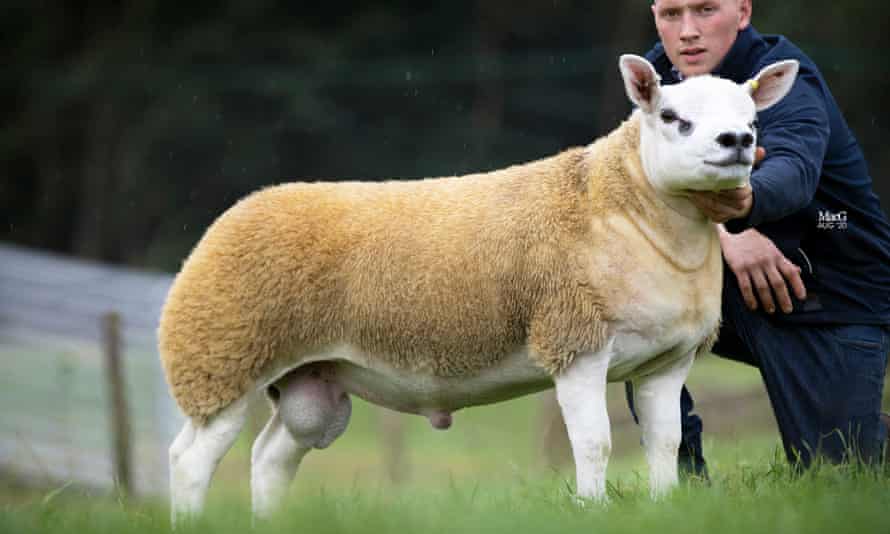Double Diamond had all the looks a lamb needed: toned torso, perfect head and muted gold colouring. And he commanded a price to match, selling during a frenzied few minutes of bidding for a world record sum of 350,000 guineas (£367,500).
Jeff Aiken, one of three breeders who joined forces to pay the highest price ever commanded by a sheep, had been eyeing up Double Diamond for several weeks before Thursday’s sale in Lanark, near Glasgow. Heavily muscled, he was genetically perfect.
“It’s just like every other business – horse racing or the cattle business,” Aiken said. “Every once in a while something special comes along and yesterday an extra special Texel turned up. Everyone wanted a piece of it.”
Texels are a highly sought-after breed that originated on the small island of Texel, off the coast of the Netherlands. They regularly sell for five-figure sums, but this battle became particularly intense, Aiken said.
He had already agreed with another breeder to bid jointly for Double Diamond, but as the significance of the Scottish national Texel sale became clear in the leadup to the event, a third breeder joined in. By the time the auction began, breeders had formed rival consortiums to pool their bids for the six-month-old.
“It was more nerve-racking than excitement,” Aiken said. “We knew it was going to be something really special. He was just an outstanding animal, backed up by all the best genetics. There was about seven or eight people who really, really wanted him and that’s what led to the price.”
The lamb was sold by Charlie Boden and family from their Sportsmans flock in Cheshire.
Until the sale, the previous record for a sheep sold at auction stood at just over £230,000, set in 2009; and the most Aiken had ever paid was 100,000 guineas (£105,000) for a ram called Sportsman Batman.
Aiken and his two partners, who run farms in Ayrshire and Northumberland, will share ownership of Double Diamond. He will be put out to stud, paired off with dams for a premium price; as he gets older, his sperm will be collected to use for artificial insemination.
Aiken, who breeds Texels at the farm he and his wife, Jen, run in Lancashire, was keen to stress such prices were rare. “Don’t get me wrong, it is an obscene amount of money to pay for a sheep, and it definitely should not be a reflection on the farming community.”
• This article was amended on 29 August 2020. The original incorrectly described Texel sheep as a rare breed. In fact they are now found in many parts of the world.

